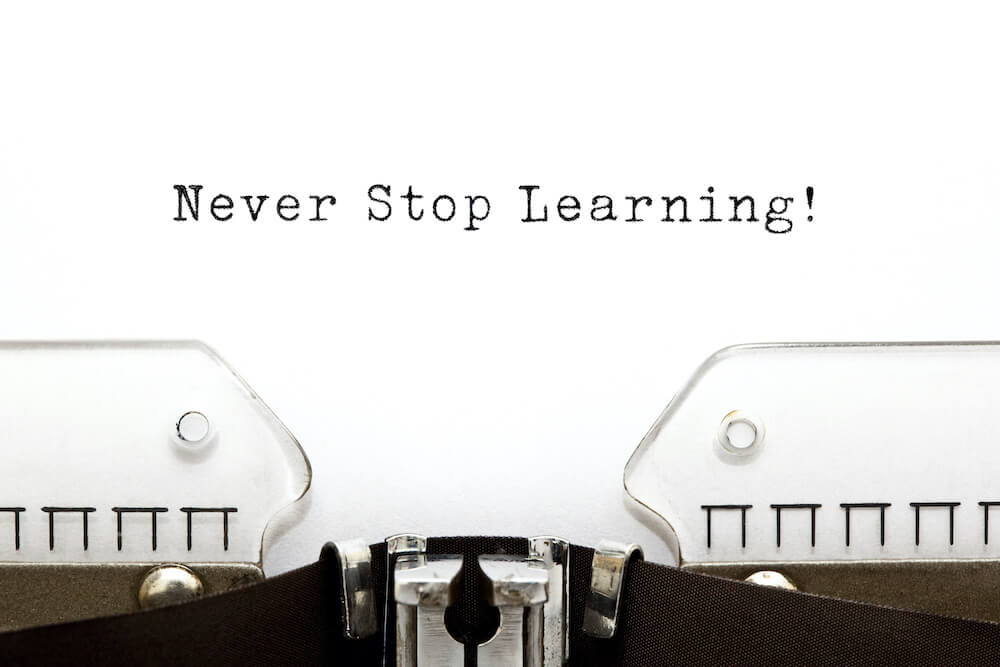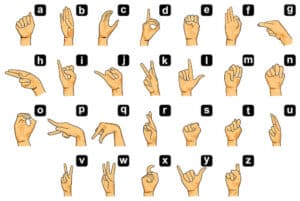What is lifelong learning and why is it important?

Today we can hear about lifelong learning high and low: about its influence on career and social life, mental health, and self-confidence. So, we decided to highlight some main features of lifelong education, explain what does it mean in practice, and why lifelong learning is important.
Lifelong learning definition
Basically, this concept of lifelong learning is easy to get. Lifelong learning can be defined as continuing self-development after formal education. It is based on the idea that excellence has no limits, so this education does not have an expiring date. However, it requires some previously acquired base, like formal education from school, college, or university.
On the one hand, lifelong learning is about expanding your existing knowledge in depth and breadth. On the other hand, it helps you discover new topics and subjects from different areas of study. Consequently, it allows you to carve more facets of your personality.
But, unlike formal education, where attending school is mandatory, lifelong learning is voluntary. It is your choice what, when, how to study, and whether you should do it at all.
Fun Fact: The oldest student, Guadalupe Palacios, is 96 years old. She lives in Mexico and hopes to graduate for her 100 birthday in 2022.
What is the importance of lifelong learning?
We live in times of change: there is always something new in business, technology, politics, culture, and art. Every day gives us the challenge to cope with to keep our work position, social status, and personal life. That is why we need to grow continuously to enhance our knowledge and skills, solve problems more efficiently, communicate easily, become better parents, spouses, and friends. And that`s why it is important to be a lifelong learner.
Apart from social aspects, lifelong education is essential on the mental level because the brain possesses natural curiosity. To maintain its good shape, we have to feed it with something new day by day.
What is lifelong learning in practice?
Here are some examples of learning in our adulthood:
Self-taught studying. It means researching information, reading, listening to podcasts, watching explanatory videos, listening to lectures. You are coming up with topics\subjects you`d like to study, make a plan, and execute it. In other words, self-taught learning is 100% your responsibility.
Skill-developing. There are some apparent skills, like cooking, driving, pottery making, etc. But there are also more abstract ones: critical thinking, leadership, public speaking, etc.
Guided studying. When we take piano courses, programming classes, singing, language courses, we usually need guidance from a specialist.
How to adopt lifelong learning in your life?
Some easy tricks can help you to implement learning into your everyday routine. Of course, they all require some basics of time management and self-organization.
Use Nerdish
We created Nerdish as an instrument for self-education in any period of your life. It is an app where you can find research-based articles about history, the human body, health, art, culture, everyday things, etc., that are easy to read. I times when information comes from everywhere, it might be hard to find reliable sources and get the newest materials. We have already done this for you and transformed it into articles that take 10-15 minutes to read and source you with proven facts and insights. Plus, we added quizzes based on topics to review your knowledge and see what needs to be improved.
Learn a new language
Learning a foreign language is probably one of the most common examples of lifelong education. It has many benefits because a new language pushes the brain to work hard. Firstly, it allows training memory by repeating rules and vocabulary. Secondly, it enlarges our life picture by plunging us into foreign culture, tradition and so on. Plus, knowing the language, let`s say, French, we are more motivated to travel to France, Belgium or Montreal, and have some practice there. So, we might enrich our life with journeys. The third reason for foreign language is that the world has become globalized, and our language skills serve as a significant competitive advantage. Knowing another language can open new job opportunities and increase salaries.
Take dance classes
Dancing may seem like fun, but it actually satisfies our brain with multiple exercise training. Learning how to dance requires a lot of concentration on movements, rhythm, music, and memorizing all those pas.
From a scientific point of view, dance is one of the best stress remedies because it encourages the release of endorphins, commonly known as the hormones of happiness. One 2017 experiment showed that the senior dancers, after six months of regular training, had brain improvements connected to remembering the names and faces of people.
As a huge bonus, you can fulfill your physical activity by dancing. You can tone your muscles and increase your endurance.
Learn how to play a musical instrument
We looked up some scientific data and found out about a study dedicated to leisure activities of people older than 75 years. As a result of this research, playing musical instruments was named one of the most efficient activities to reduce the risk of dementia.
As well as dancing, learning music empowers memory and makes different brain parts work simultaneously: attention, note reading, maintaining the rhythm, and performing. As a result, you can give your brain a powerful exercise.
As a cherry on the top, you can get an ability to understand outstanding musical pieces better and perform some of them. Just imagine yourself playing Beethoven’s Moonlight Sonata or Chopin’s Nocturnes: how cool is that?!
Everything is possible with lifelong learning.
Join an online course on Coursera, Udemy, etc.
Receiving a continuing education nowadays has become as easy as pie. World-known online schools are fighting for our attention and offering the best programs by PHDs, people in business, and other highly qualified tutors.
Online courses are super instruments to boost general knowledge, get new up-to-date information in some specific area, refresh your professional skills, find new hobbies, etc. Usually, every course has a list of recommended literature to get even more profound knowledge on the subject. And the community of other students might help to stay motivated and receive that certificate at the end of the course.
All you have to do is open your laptop.
What are the benefits of lifelong education?
There are myriad advantages that constant learning can bring into our lives, but we would like to highlight five of them:
Expanding your horizons
When you learn, you grasp more information, facts, find out about things you have never imagined to exist. To be short, you become more intelligent. Plus, constantly learning helps to transform boredom into self-developing. Studying makes life more enjoyable. Plus, it can open future opportunities in your career and personal life because you never know where your interests will lead you.
Exploring yourself
The thing about knowledge is that the more you grasp, the more you want. With continuous education, you might discover your new passions: become interested in gardening, learn a new language, play a musical instrument, etc. The importance of continuous learning lies in its ability to expand your interests far beyond your work and find out what inspires you.
Improving skills
As we have already said, the world doesn`t stay at one point, and there are always some new skills to acquire, like non-harmful communication, critical thinking, fast reading, etc. Skills are like muscles: they have to be trained to maintain their strength, and continuous education is efficient. Plus, developing one skill leads to another one. When we study drawing, we stimulate creativity, abstract thinking, artistic vision, etc.
Giving you confidence
Learning is a lifelong process that gives us the feeling of self-fulfillment, makes us more knowledgeable and skillful. We can boost our self-confidence and self-worth. It is far easier to be an exciting communicator, gain the trust of colleagues, make our opinions worth listening to if we have enough knowledge and can apply it in practice.
Keeping the brain healthy
Information is brain fuel, so we have to ensure that this fuel is of the highest quality. New neurological connections appear when we learn something and keep the brain`s power and health. Recent studies showed that learning helps protect the brain from decline, memory loss, and Alzheimer’s disease.













